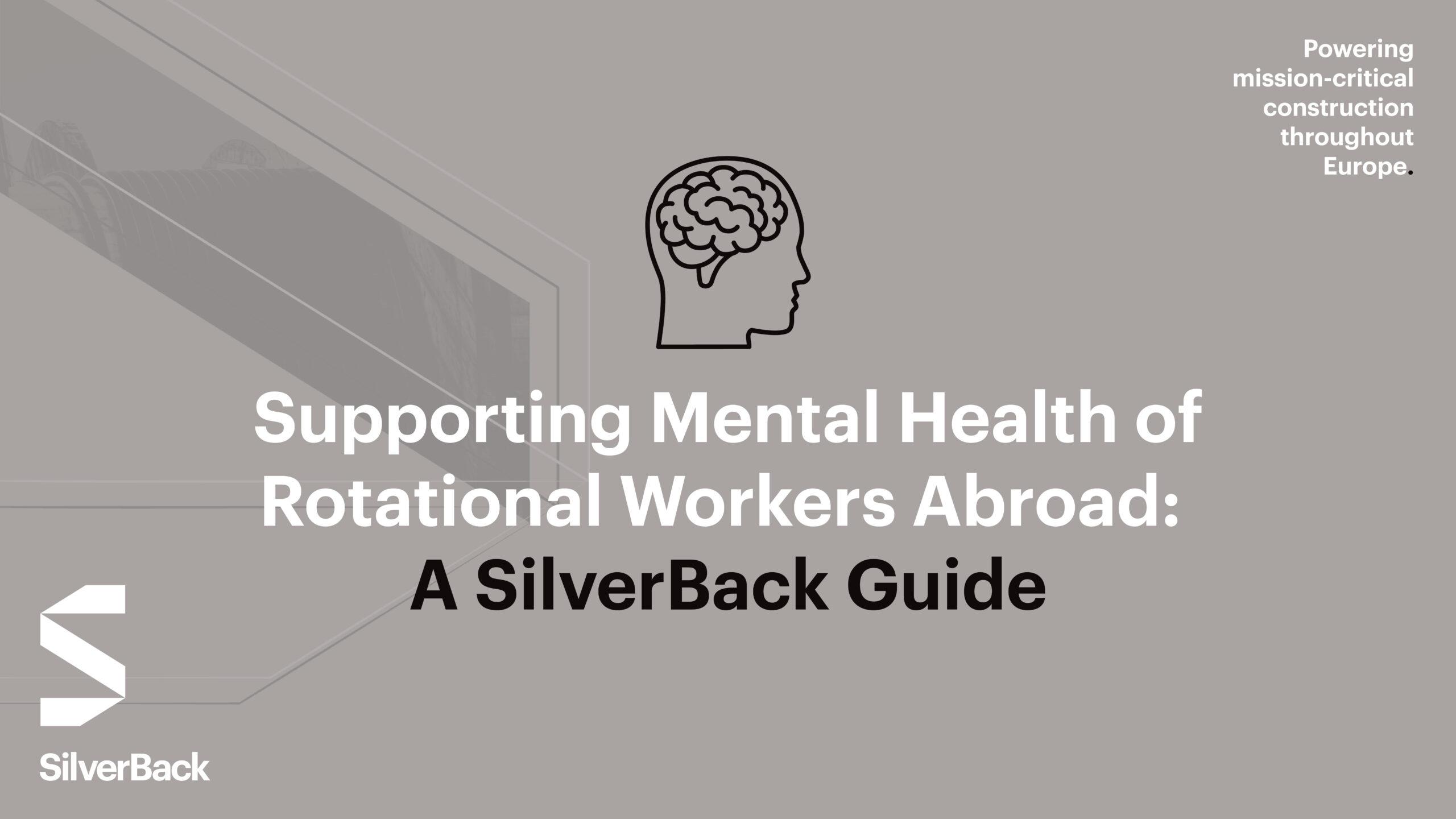
In today’s construction industry, many individuals find themselves working away from home, whether it’s due to remote work arrangements, business trips, or long-term assignments. Specifically in the construction industry, it is common to undertake rotational work abroad.
Rotational work is where you obtain work abroad, you’ll be expected to work in the given country for a number of weeks and you’ll fly home for a break for a number of days before leaving again throughout the contract.
This lifestyle can offer unique benefits such as having regular time off at home with family and the rate of pay is generally higher than that of some rates of pay at home due to the fact you’re required to work away from home.
As well as that for someone who’s looking to upskill themselves, the opportunities to do so while working on mission-critical construction projects are endless. You’ll have an opportunity to strengthen your CV and gain references from some of the leading construction management staff in Europe. Benefits can also include exploring and travelling to travel to new countries and exposure to new cultures whilst earning a substantial salary.
It is important however to acknowledge that whilst the benefits are extensive, you are effectively working longer hours while away in order to have extended periods at home while you’re not working. This can pose significant challenges to one’s mental well-being.
In this post, we will explore practical strategies and suggestions to support the mental health of construction employees working away from home.
- Establish a Supportive Work Culture: Create a positive and supportive work environment that encourages open communication and prioritises mental health. Foster a culture that values work-life balance and acknowledges the unique challenges faced by employees working away from home. Encourage employees to share their concerns and experiences without fear of judgment.
- Provide Adequate Resources: Ensure that employees have access to necessary resources, both in terms of mental health support and practical assistance. Offer an employee assistance program (EAP) that includes confidential counselling services. Provide information on local mental health professionals and resources available in the area. Additionally, assist with logistical aspects such as accommodation, transportation, and local amenities.
- Facilitate Social Connections: Working away from home can lead to feelings of isolation and loneliness. Encourage social connections among employees by organising team-building activities, networking events, or regular virtual meetings. Foster an inclusive and supportive community that helps employees develop relationships with their colleagues and build a sense of belonging.
- Encourage Self-Care: Promote self-care practices that prioritise mental and emotional well-being. Encourage employees to establish a routine that includes exercise, healthy eating, and sufficient sleep. Provide resources on mindfulness, stress management, and relaxation techniques. Encourage breaks during the workday and support using holiday days to recharge.
- Flexibility and Work-Life Balance: Recognise the importance of work-life balance for employees working away from home. Offer flexible work arrangements whenever possible, allowing individuals to manage personal responsibilities and maintain connections with their families. Encourage employees to set boundaries and maintain a healthy separation between work and personal life.
- Regular Check-ins: Implement a system for regular check-ins with employees to monitor their well-being. Provide opportunities for confidential conversations, where individuals can discuss their challenges, concerns, and progress. These check-ins can help identify early signs of distress and enable appropriate support and intervention.
- Mental Health Training and Education: Offer mental health training programs to employees and managers. Equip them with the knowledge and skills to identify warning signs of mental health issues and provide appropriate support. Create awareness campaigns that reduce stigma and foster a culture of understanding and empathy.
- Encourage Hobbies and Recreation: Support employees in pursuing their hobbies and recreational activities. Offer information on local clubs, classes, or community events that align with their interests. Engaging in enjoyable activities outside of work can provide a much-needed sense of fulfilment and balance.
Supporting the mental health of employees working away from home requires a proactive and holistic approach. By creating a supportive work culture, providing necessary resources, and encouraging self-care and work-life balance, organisations can foster an environment that prioritises mental well-being. Through these strategies, employers can help employees navigate the challenges of working away from home and promote a healthier and more productive workforce.
To find out more about supporting rotational workers abroad please email [email protected].
Post Details
Category
Blog Post News SilverBack Social
Date
May 15, 2023
Author
SilverBack
Leave a Comment